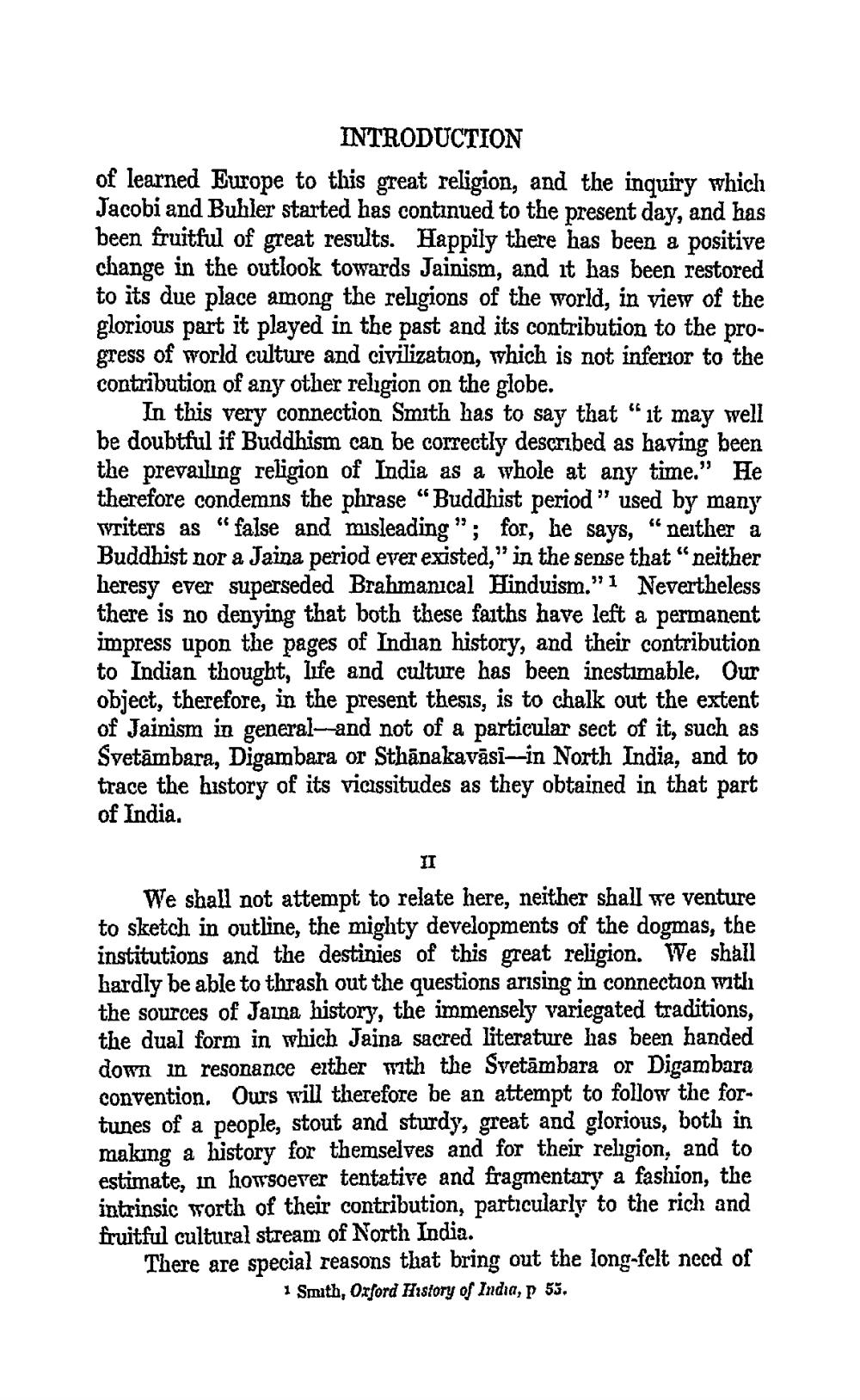________________
INTRODUCTION of learned Europe to this great religion, and the inquiry which Jacobi and Buhler started has continued to the present day, and has been fruitful of great results. Happily there has been a positive change in the outlook towards Jainism, and it has been restored to its due place among the religions of the world, in view of the glorious part it played in the past and its contribution to the progress of world culture and civilization, which is not inferior to the contribution of any other religion on the globe.
In this very connection Smith has to say that "it may well be doubtful if Buddhism can be correctly described as having been the prevailing religion of India as a whole at any time." He therefore condemns the phrase "Buddhist period” used by many writers as "false and misleading"; for, he says, “nether a Buddhist nor a Jaina period ever existed,” in the sense that "neither heresy ever superseded Brahmanical Hinduism."1 Nevertheless there is no denying that both these faiths have left a permanent impress upon the pages of Indian history, and their contribution to Indian thought, life and culture has been inestimable. Our object, therefore, in the present thesis, is to chalk out the extent of Jainism in general- and not of a particular sect of it, such as Svetāmbara, Digambara or Sthanakavāsi-in North India, and to trace the history of its vicissitudes as they obtained in that part of India.
We shall not attempt to relate here, neither shall we venture to sketch in outline, the mighty developments of the dogmas, the institutions and the destinies of this great religion. We shall hardly be able to thrash out the questions arising in connection with the sources of Jaina history, the immensely variegated traditions, the dual form in which Jaina sacred literature has been handed down in resonance either with the Svetāmbara or Digambara convention. Ours will therefore be an attempt to follow the fortunes of a people, stout and sturdy, great and glorious, both in making a history for themselves and for their religion, and to estimate, in howsoever tentative and fragmentary a fashion, the intrinsic worth of their contribution, particularly to the rich and fruitful cultural stream of North India. There are special reasons that bring out the long-felt need of
1 Smith, Oxford History of India, p 55.




